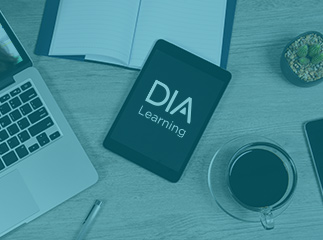Overview

Continuing Education Credits are not available for the archived offering.
This archive may be purchased through October 31, 2015.
Archive duration: 1 hour 28 minutes
Series Overview
Knowledge of new medicines for children and clinical research has increased over the past decades. A revolution has taken place in pediatric oncology, where new dosing and new combinations of anticancer drugs developed for adult cancer have made the diagnosis of child cancer no longer an automatic death sentence.
DIA is presenting a Seven-Part webinar series on Pediatric Drug Development, which will start with an overview of the challenges and historical background of pediatric drug development, then proceed to specific discussion of US and EU pediatric legislation, and, in four additional pivotal webinars, discuss technical specificities of dosing in children, particular requirements in pediatric clinical trials, the development of pediatric formulations, and the need and challenges of juvenile animal studies.
Part 5: Technical Development: Pediatric Formulations Overview
In the past children were regarded and treated as small adults, with dosing recommendations varying between rough estimates - children get half a tablet, babies a quarter - and empirical formulas, which varied by country and sometimes across regions or hospitals within the same country.
The lack of appropriate pediatric formulations has been identified as a major obstacle for the study and use of drugs in children. Adult formulations may be inappropriate for different reasons. Children under 7 years of age often have difficulty in swallowing capsules or tablets. Liquid formulations facilitate dose adjustments and are easily administered and recommended for infants and younger children. The production of formulations may be limited by the solubility and stability of drugs, require taste-masking agents, preservatives and other excipients. Liquid formulations may also not be optimal for the developing world, where clean water and refrigeration may not be available.
In general, there is a need in pediatrics to develop flexible dosage forms. There is an increased recognition that for medicines requiring precise dosage and titration, the development of a universal technology platform could allow for "tailored dosages" and a range of dosage forms appropriate for children at different developmental stages, or for other populations with swallowing difficulties.
This webinar will focus on age-appropriate formulations, administration, dosing volumes, and excipients and levels.
Other Webinars in this Series:
Part 1: Overall Challenge: The Vision of Better Medicines for Children
Part 2: Regulatory Framework
Part 3: Regulatory Framework EU
Part 4: Dosing in Children
Part 6: Preclinical Toxicology & Safety
Part 7: Operational Challenges of Pediatric Clinical Trials
Have an account?
Ways to register
Archived Webinar
Series Discount Available*
Buy 3 or more webinars in this series and save 15%
Buy 5 or more and save 20%
Buy the whole series and save 30%
*Order must be placed in one transaction for savings to be applied.
Group site registration is a license for ONE internet login allowing multiple viewers from one location.
Group Plus is a license for up to FIVE internet logins allowing one or more viewers at each login location.
CANCELLATIONS
No refunds will be provided in the event of a participant’s cancellation since all costs for this webinar have been prepaid by DIA. DIA reserves the right to modify or cancel programs and/or substitute presenters or panelists. DIA is not responsible for failure to deliver programs due to circumstances beyond its control.
Participants with Disabilities: Reasonable accommodations will be made available to persons with disabilities who attend an educational activity. Contact the DIA office in writing at least 15 days prior to event to indicate your needs.